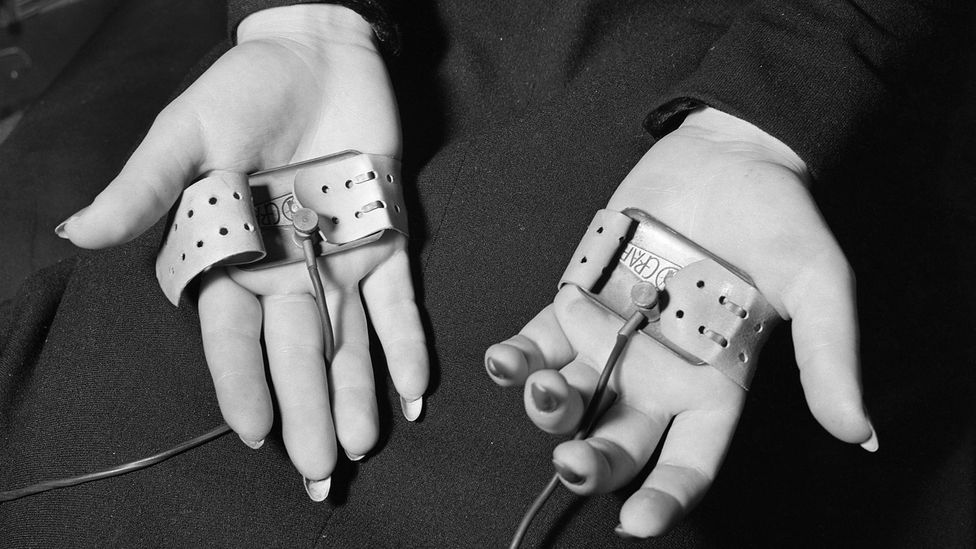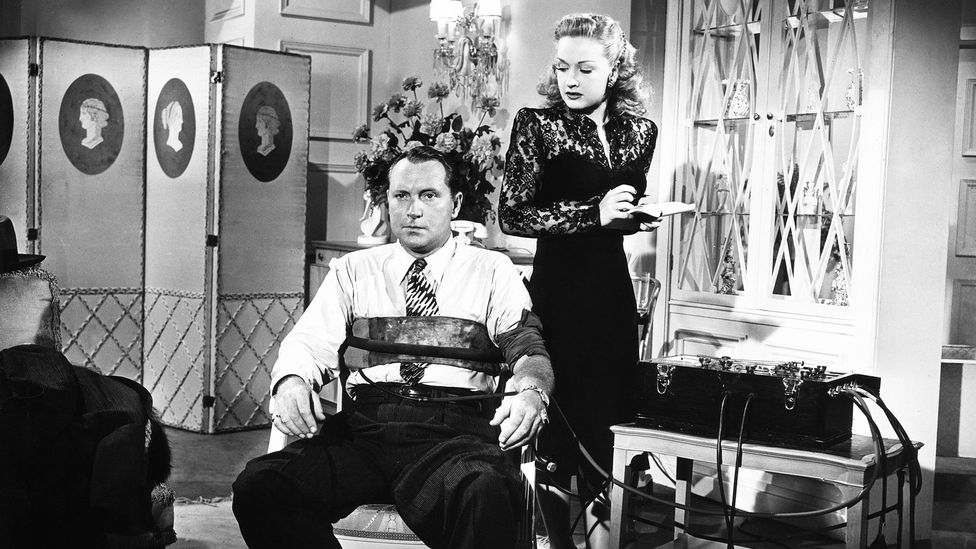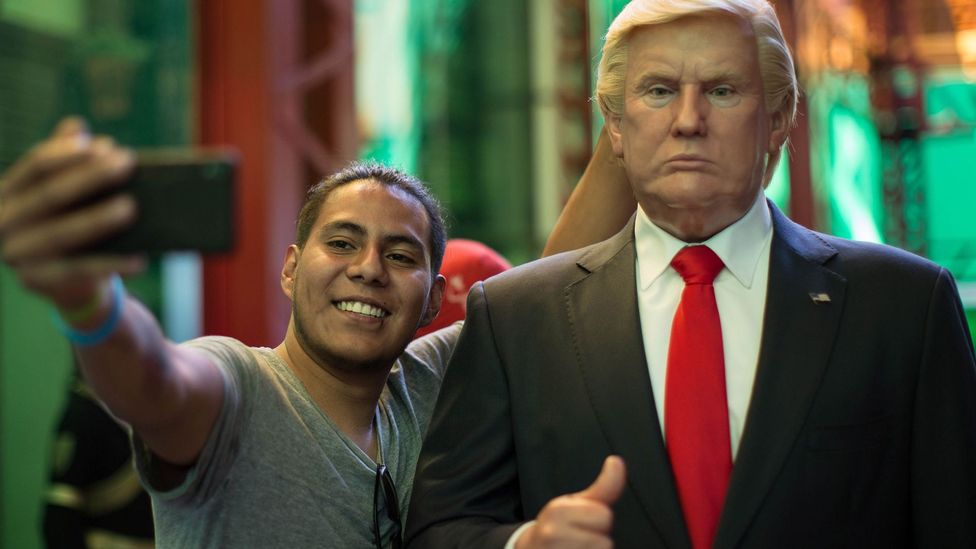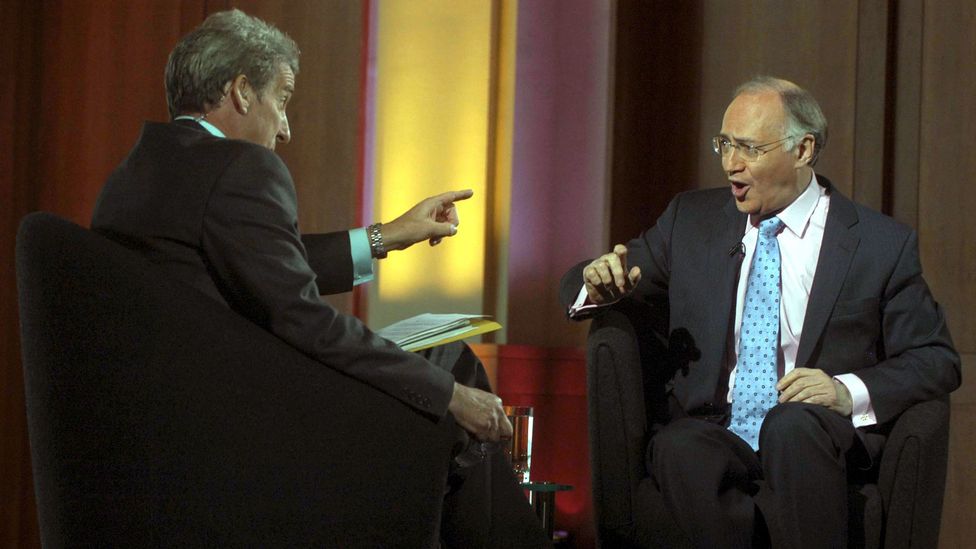Clip Art on Lying and the Damage It Does to Society
The stray fine art of lying by telling the truth
(Image credit:
Getty Images
)

The line between truth and lies is condign ever murkier, finds Melissa Hogenboom. At that place's fifty-fifty a word for a very different form of lying.
I
Information technology is no secret that politicians oft lie, but consider this – they tin exercise then merely by telling the truth. Confused?
That statement becomes clearer when you lot realise that we've probably all done it. A classic example might exist if your mum asks if you've finished your homework and y'all respond: "I've written an essay on Tennessee Williams for my English language class." This may exist true, but it doesn't actually answer the question about whether your homework was done. That essay could accept been written long agone and you take misled your poor female parent with a true statement. Yous might non have fifty-fifty started your homework yet.
Misleading by "telling the truth" is then pervasive in daily life that a new term has recently been employed past psychologists to depict it: paltering. That information technology is so widespread in social club now gives us more than insight into the grey area betwixt truth and lies, and perhaps even why nosotros lie at all.

Most of us tell more than ane lie per twenty-four hours (Credit: Everett Collection Inc/Alamy)
We lie all the fourth dimension, despite the fact that information technology costs u.s.a. considerably more than mental endeavor to lie than to tell the truth. US president Abraham Lincoln once said that "no man has a good enough memory to be a successful liar".
In 1996 one researcher, Bella DePaulo fifty-fifty put a figure on it. She constitute that each of us lies about one time or twice a day. She discovered this past asking participants for 1 week to note down each fourth dimension they lied, even if they did so with a skilful intention. Out of the 147 participants in her original report, simply seven said they didn't lie at all - and nosotros can only gauge if they were telling the truth.
Many of the lies were adequately innocent, or even kind, such equally: "I told her that she looked skillful when I thought that she looked like a stuffed." Some were to hibernate embarrassment, such every bit pretending a spouse had not been fired. DePaulo, a psychologist at the Academy of California Santa Barbara, says that the participants in her study were not aware of how many lies they told, partly because virtually were so "ordinary and so expected that we just don't notice them".
It is when individuals use lies to dispense others or to purposely mislead that it is more than worrying. And this happens more than often than y'all might call up.

The truth is non always what information technology seems (Credit: Chris Rout/Alamy)
When Todd Rogers and his colleagues were looking at how often politicians contrivance questions during debates they realised something else was going on. By stating another truthful fact, they could get out of answering a question. They could even imply something was truthful when information technology was non. Politicians do this all the time, says Rogers, a behavioural scientist at Harvard Kennedy School. He and colleagues therefore set out to understand more than most it.
He found that paltering was an extremely common tactic of negotiation. Over half the 184 concern executives in his written report admitted to using the tactic. The inquiry also found that the person doing the paltering believed it was more than upstanding than lying outright.
The individuals who had been deceived, withal, did non distinguish between lying and paltering. "It probably leads to too much paltering every bit communicators think that when disclosed, it will be somewhat ethical, whereas listeners meet it as a lie," says Rogers.

Politicians commonly dispense the truth (Credit: Getty Images)
Information technology is also difficult to spot a misleading "fact" when nosotros hear something that on the face of it, sounds true. For case, the UK's Labour Party campaign video to lower the voting historic period said: "You're 16. Now yous tin get married, bring together the Army, work total-time." The BBC'due south reality check team discovered that these facts do non tell the whole truth.
"Yous can only bring together the Army aged 16 or 17 with your parents' permission," the Reality Check squad wrote. "At that age yous besides need your parents' permission to get married unless you do so in Scotland. Since 2013, xvi and 17-yr-olds cannot piece of work full-time in England, simply can in the other 3 home nations with some restrictions."
In another example, the then-presidential-nominee Donald Trump paltered during the presidential debates. He was questioned nigh a housing discrimination lawsuit early in his career and stated that his company had given "no access of guilt". While they may non have admitted it, an investigation by the New York Times constitute that his company did discriminate based on race.
And even if we practise spot misleading truths, social norms can forestall us from challenging whether or not they are deceptive. Take a now infamous interview in the UK, where announcer Jeremy Paxman interviewed the politician Michael Howard (pictured below). He repeatedly asks Howard whether he "threatened to overrule" the so prisons governor. Howard in plough, continues to evade the question with other facts in a bizarre substitution that becomes increasingly awkward to watch. Not many of us are comfy challenging someone in that way.

Paltering is a mutual negotiation tactic (Credit: BBC)
While information technology's common in politics, and then too is it in everyday life. Consider the manor agent who tells a potential heir-apparent that an unpopular holding has had "lots of enquiries" when asked how many actual bids at that place have been. Or the used car salesman who says a motorcar started up extremely well on a frosty forenoon, without disclosing that it bankrupt down the week before. Both statements are true just mask the reality of the unpopular property and the dodgy machine.
Paltering is possibly so commonplace because it is seen equally a useful tool. It happens because nosotros constantly accept and then many competing goals, suggests Rogers. "We want to achieve our narrow objective – [selling a house or car] – but we also want people to see u.s.a. as ethical and honest." He says these ii goals are in tension and by paltering, people believe they are beingness more ethical than outright lying. "We show testify they are making a mistake," says Rogers.
We tin can see the problems this sort of thinking can cause reflected in society today. The public are conspicuously ill of being lied to and trust in politicians is plummeting. One 2016 poll plant that the British public trust politicians less than manor agents, bankers and journalists.
And despite the fact that we now frequently expect lies from those in ability, it remains challenging to spot them in existent time, specially so if they prevarication by paltering. Psychologist Robert Feldman, author of The Liar in Your Life, sees this as worrying both on a personal and on a macro level. "When nosotros're lied to past people in power, information technology ruins our confidence in political institutions – it makes the population very cynical near [their] real motivations."
Lying can and does conspicuously serve a devious social purpose. It can help someone paint a better moving-picture show than the truth, or assist a politician dodge an uncomfortable question. "It's unethical and it makes our democracy worse. But it's how human cognition works," says Rogers.
Unfortunately, the prevalence of lies might stalk from the way we are brought up. Lies play a role in our social interactions from a very immature age. We tell young children about tooth fairies and Santa, or encourage a child to exist grateful for an unwanted present. "We give our kids very mixed messages," says Feldman. "What they ultimately learn is that fifty-fifty though honesty is the best policy, information technology'due south besides at times fine and preferable to lie about things."
And then side by side time you hear a fact that sounds odd, or someone to exist deflecting a question, be enlightened that what you think is the truth may very well be deceptive.
---
Melissa Hogenboom is BBC Future's characteristic author, she is @melissasuzanneh on twitter.
Join 800,000+ Future fans by liking u.s.a. on Facebook , or follow united states of america on Twitter .
If you liked this story, sign upwards for the weekly bbc.com features newsletter , called "If You Only Read six Things This Week". A handpicked option of stories from BBC Hereafter, Culture, Majuscule, and Travel, delivered to your inbox every Friday.
Source: https://www.bbc.com/future/article/20171114-the-disturbing-art-of-lying-by-telling-the-truth
0 Response to "Clip Art on Lying and the Damage It Does to Society"
Post a Comment